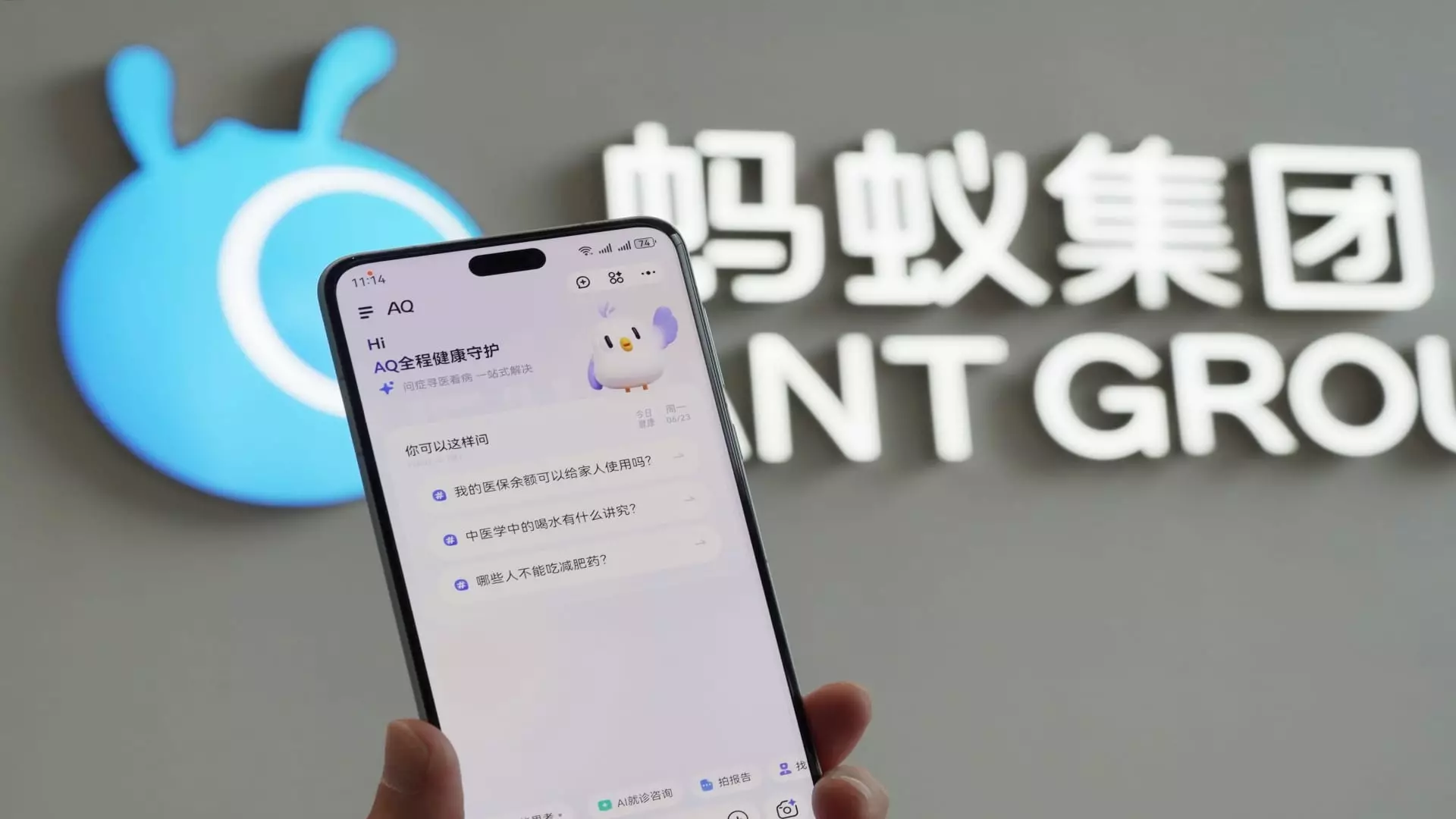In an audacious leap into the healthcare sector, Ant Group, a significant player in China’s tech industry and an affiliate of Alibaba, has introduced an innovative smartphone application dubbed AQ, which stands for “answer your question.” This launch, showcasing the potential of artificial intelligence (AI) in healthcare, embodies Ant’s ambition to reshape the medical landscape not only in China but potentially on a global scale. The initiative underlines a critical shift in how technology can effectively bridge the gap between users and medical professionals, heralding a new era of patient-centric healthcare facilitated by AI-driven platforms.
Targeting Global Ambitions
Ant’s strategy is not merely confined to serving the fast-paced healthcare needs of the Chinese population; it also hints at a broader international vision. By opting for a simple and universal name in English, AQ signifies a desire to resonate with a global audience. This is an intelligent move, leveraging linguistic simplicity to enhance its marketability outside China. The ability to consult AI avatars resembling real-life specialists is a groundbreaking concept, effectively offering users a first layer of medical assistance and guidance before even setting foot in a clinic.
It’s surprising, though not entirely unexpected, to see a Chinese company aspiring to dominate an area as critical as healthcare. This indicates a willingness to export not just products, but an entire ecosystem of innovation built around AI technology, thereby positioning itself as a leader amidst rising global competition in AI health applications.
The Technical Backbone
Ant Group’s investment in AI stems from substantial research and development concentrated on large language models, particularly the technology provided by DeepSeek, Alibaba, and Ant’s in-house capabilities. The partnership among these entities exemplifies the collaborative spirit driving innovation in the region, yet it raises questions about data privacy and the ethics of using AI in sensitive environments like healthcare. While the promise of speedy diagnostics and enhanced patient flow is enticing, it’s essential to scrutinize the underlying algorithms driving this technology — particularly given the profound implications for patient confidentiality and data security.
With claims of accessing data from over 5,000 hospitals and nearing one million doctors, AQ presents an expansive healthcare network. However, this also invites skepticism regarding the integration and efficacy of such a vast database. Will users receive the same level of care they might encounter in a personal or face-to-face consultation, or are we trading the warmth of human interaction for the cool efficiency of AI?
Changing Dynamics of Healthcare Accessibility
One of the commendable aspects of this application is its potential to mitigate the incessant strains on China’s healthcare system, particularly its crowded public hospitals. The ability for individuals to book appointments digitally rather than endure interminable waits can significantly enhance access to care, showcasing how digital tools can transform traditional healthcare experiences. Moreover, with nearly 800 million users already utilizing health services through Alipay, Ant stands to leverage an extensive user base that can seamlessly transition to the new AQ app.
Despite these obtainable advantages, one must remain vigilant regarding the implications for healthcare professionals who may find themselves competing with AI solutions for patient engagement. How will this technology affect the doctor-patient relationship, and will it breed a reliance on technology that could compromise the nuanced nature of medical diagnosis?
Analyzing Competitors in the Field
In the face of similar endeavors by tech giants such as Microsoft and Amazon in the United States, Ant Group is strategically positioning itself as a pioneer in this burgeoning field within Asia. The competition emphasizes the race to leverage vast digital health records and a nationwide push toward modernization. In China, with a health insurance system that covers an impressive segment of the population and an emphasis on digital records, the groundwork is firmly established for AI advancements.
However, one must note that this is not merely a race for technological superiority; it’s a matter of ethical responsibility to ensure that innovation does not come at the expense of patient rights and safety. These concerns should prompt ongoing dialogue around the implications of AI in healthcare and demand accountability from corporations that hold significant influence over this new paradigm.
The introduction of AQ showcases the potential for revolutionary change in healthcare, offering solutions that are both innovative and essential. Yet, the journey is fraught with challenges that must be navigated with care, foresight, and a commitment to ensuring that technology serves humanity, not the other way around.


Leave a Reply